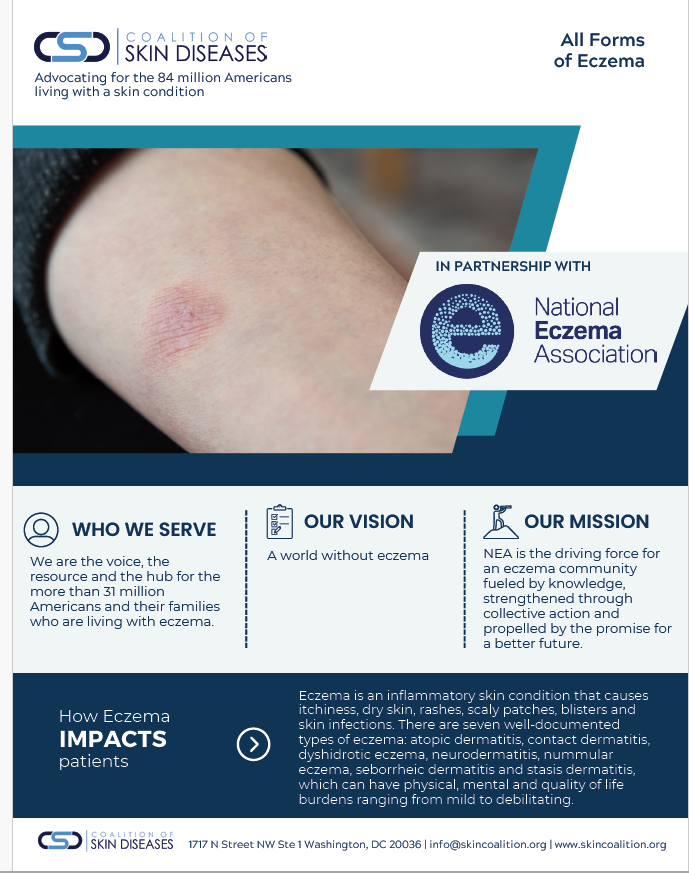Eczema is an umbrella term used to describe a group of medical conditions that cause the skin to become red, itchy and inflamed and sometimes blister, weep or peel. People with one type of eczema may also develop other types depending on genetics, and exposure to environmental and other triggers. There are seven common types of eczema: atopic dermatitis, contact dermatitis, dyshidrotic eczema, neurodermatitis, nummular eczema, seborrheic dermatitis and stasis dermatitis.
Atopic dermatitis is the most common type, and is considered the most severe and chronic. It’s most common for babies and children to develop eczema on their face (especially the cheeks and chin), but it can appear anywhere on the body and symptoms may be different from one child to the next. Often, children do outgrow eczema, though some children will continue to experience eczema into adulthood. Adults can develop eczema, too, even if they never had it as a child.
Eczema is not contagious
One of the most common concerns that exist in the lay public is that eczema is contagious. Eczema is not contagious. You can’t “catch it” from someone else.

There is currently no cure for eczema but there are many treatments available – and more on the way. Depending on age and eczema severity, current treatments include over-the-counter remedies, prescription topical medications, phototherapy, immunosuppressants and biologic drugs. Many people with eczema also find success with specific complementary and alternative treatments.
For most types of eczema, managing flares comes down to the following:
Eczema symptoms and severity are different for everyone. Itch is typically the predominant symptom, though for many it’s mild to moderate. In severe cases, however, the itch gets so bad that people develop extremely inflamed skin and scratch it until it bleeds, which only exacerbates the discomfort and perpetuates the cycle. In general, eczema symptoms include:
31.6 million people (10.1%) in the U.S. have some form of eczema. One in 10 individuals will develop eczema during their lifetime, with prevalence peaking in early childhood. People of all skin colors and ethnicities can be affected by eczema.
NEA is a non-profit, 501(c)(3) organization with a mission to improve the health and quality of life for individuals with eczema through research, support and education. NEA provides people with eczema (and the people who love them) with the information they need to live their best lives, while fast-tracking research towards better treatments and – ultimately – a cure.
In addition to providing the most comprehensive information on eczema to patients, caregivers and healthcare providers, NEA also offers its Seal of Acceptance product directory to help find suitable personal care and household products; an Eczema Provider Finder; fact sheets and much more.
For additional information, visit www.nationaleczema.org
Instagram: @nationaleczema
Facebook: @nationaleczema
Twitter: @nationaleczema

Connect with your federal legislators to speak up for dermatological conditions today.